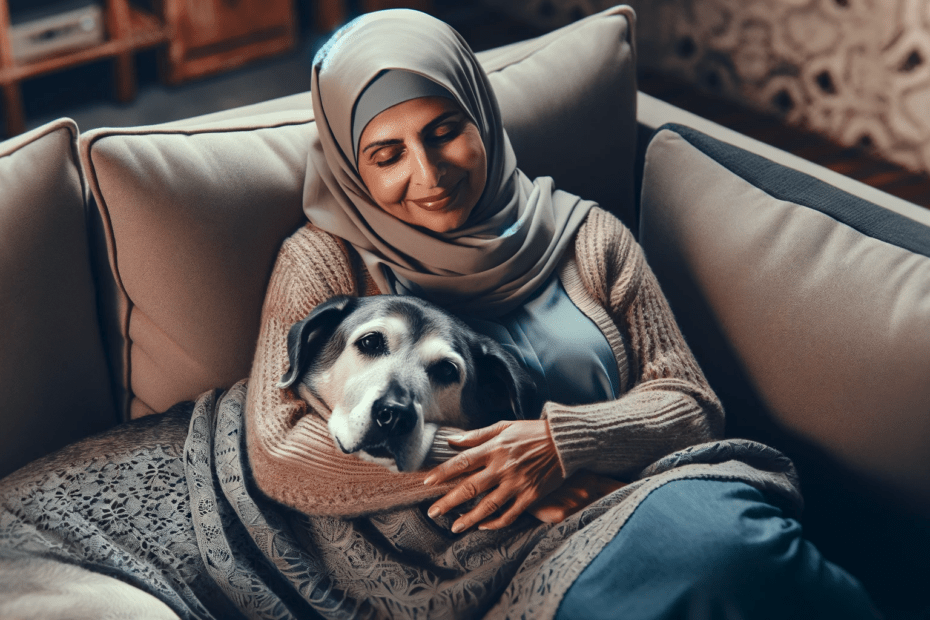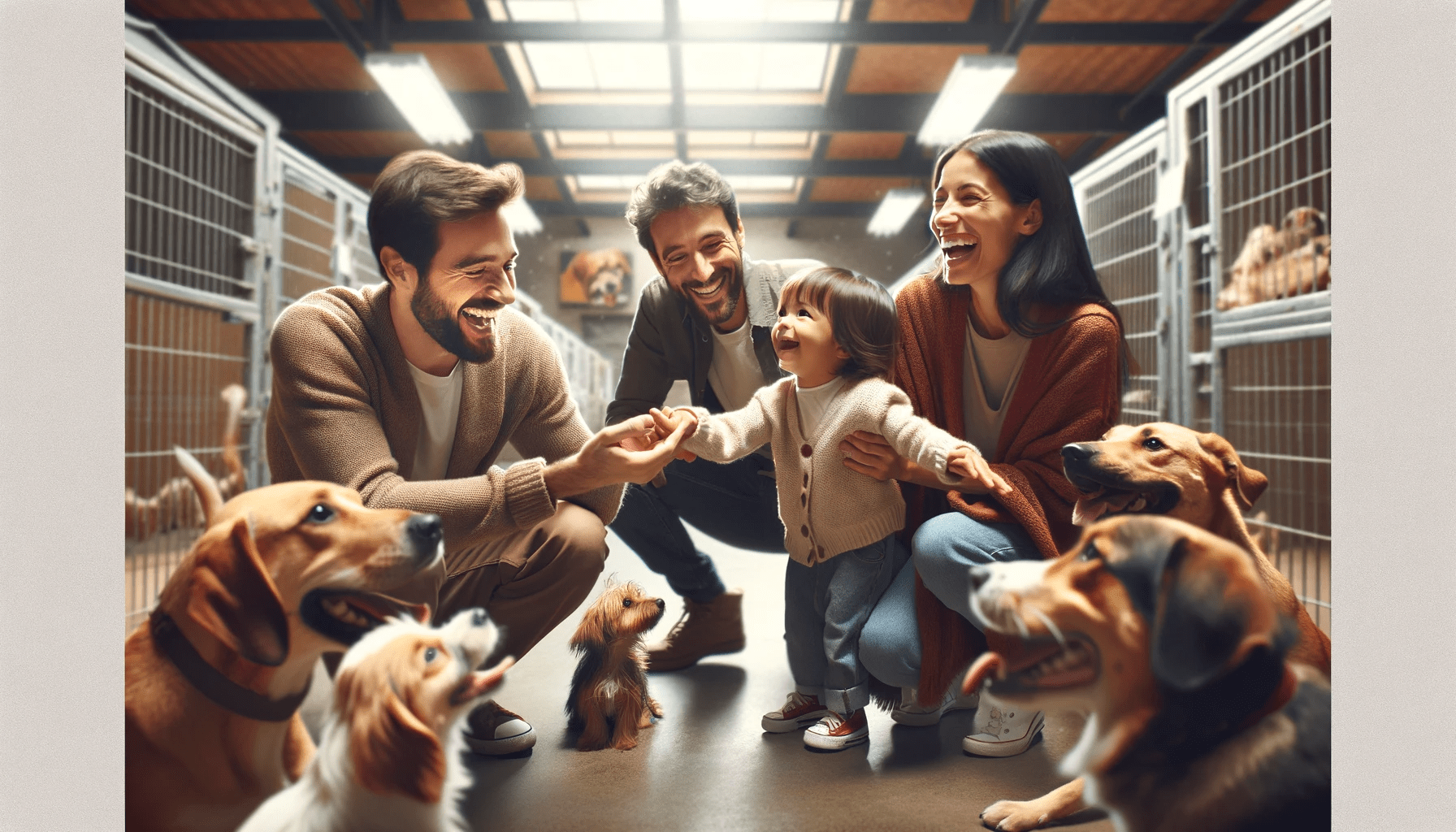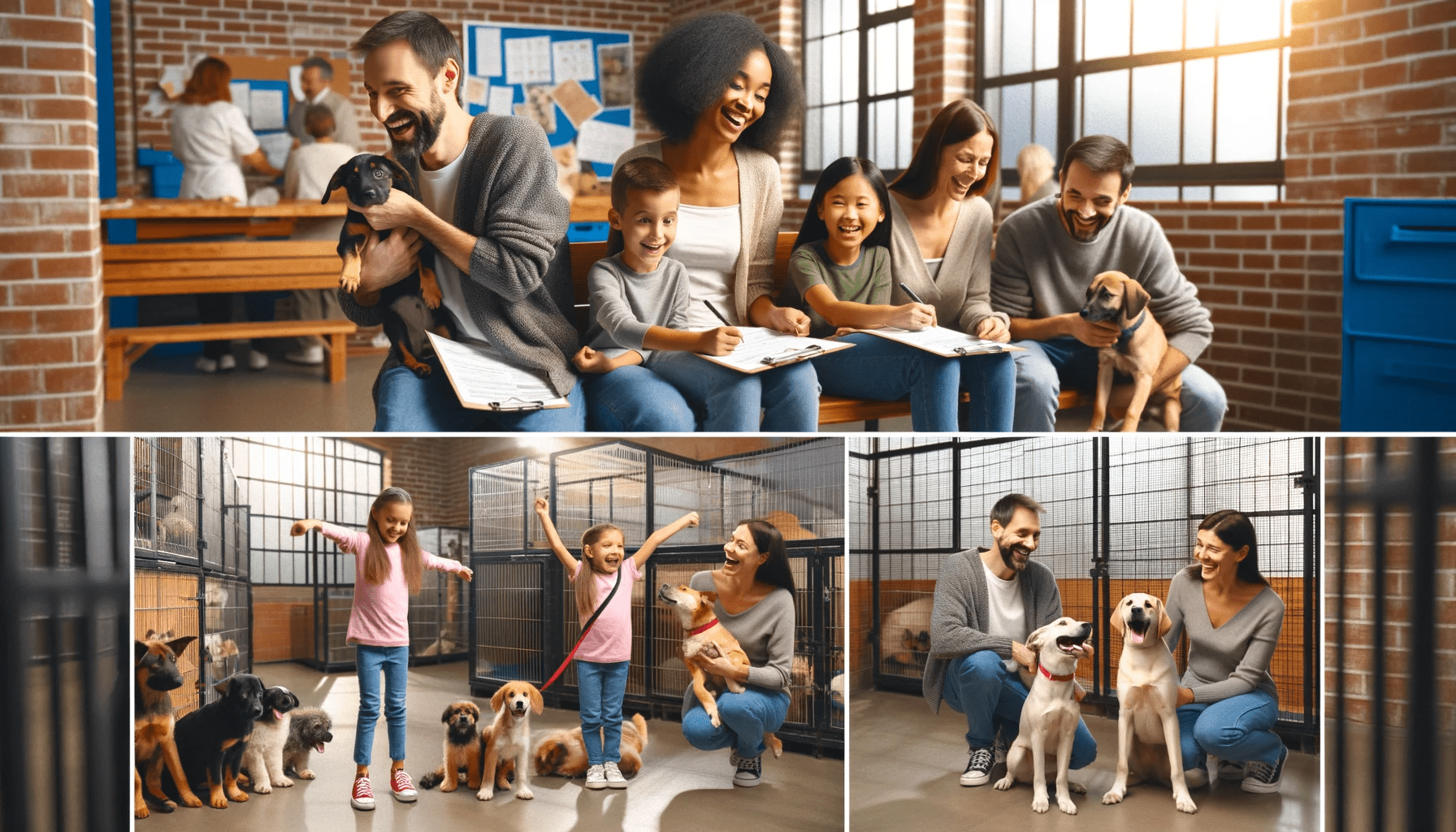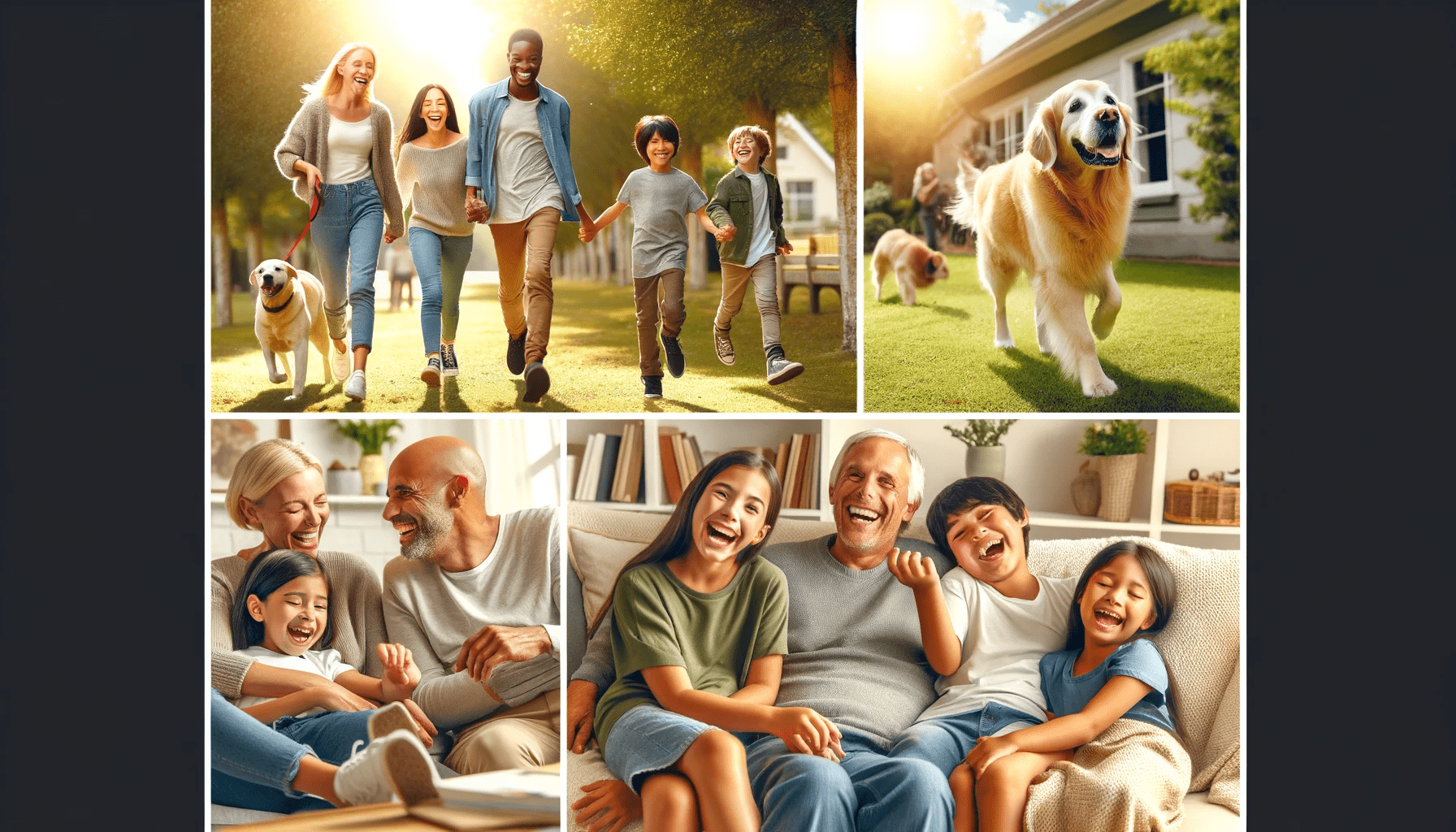Are you considering adding a furry companion to your life? Discover the advantages of adopting an older dog.
They come with a range of health benefits, and their training and behavior are often more predictable. Plus, the bond and companionship you'll experience is unparalleled.
Not to mention, adopting an older dog can be more cost-effective and requires less time commitment than raising a puppy.
By choosing to give a loving home to an older dog, you can truly make a difference in their lives.
Key Takeaways
- Increased socialization opportunities
- Experience in training
- Stronger bond and emotional connection
- Providing a second chance at happiness
Health Benefits
- You'll experience several health benefits when you adopt an older dog. One of the advantages is the opportunity for increased socialization. Older dogs have typically already been around people and other animals, which means they may be more comfortable and friendly in social situations. This can be especially beneficial if you have a busy household or if you enjoy taking your dog to public places. Socialization not only helps your dog feel more at ease, but it also promotes mental stimulation and reduces the risk of behavioral issues.
- Another health benefit of adopting an older dog is the exercise they provide. While puppies may require more physical activity, older dogs still need regular exercise to stay healthy and maintain their weight. Going for walks, playing fetch, or even engaging in low-impact activities like swimming can help keep your dog fit and active. Exercise isn't only important for their physical well-being but also for their mental and emotional health. Regular physical activity can reduce the risk of obesity, improve cardiovascular health, and even alleviate symptoms of anxiety or depression.
Training and Behavior
When it comes to training and behavior, adopting an older dog gives you the opportunity to work with a pet who's typically already well-behaved and responsive to commands. Here are some reasons why adopting an older dog can be beneficial in terms of training and behavior:
- Experience: Older dogs have likely had some level of training in the past, which means they already have a foundation of knowledge. This makes it easier for you to build upon their existing skills and teach them new commands.
- Maturity: Older dogs tend to be more settled and less prone to impulsive behavior compared to puppies. They've already gone through their 'adolescent' phase and are more focused and receptive to learning.
- Socialization: Older dogs have usually had more exposure to different people, animals, and environments, which means they're generally better at adapting to new situations. However, it's important to continue socialization techniques to ensure they remain comfortable and well-behaved in various settings.
Using positive reinforcement techniques, such as treats and praise, can help reinforce good behavior in older dogs. Remember to be patient, understanding, and consistent in your training efforts. With love and guidance, an older dog can become a well-behaved and cherished member of your family.
Bonding and Companionship
Did you know that adopting an older dog can provide you with a stronger bond and companionship than getting a puppy? When you bring home an older dog, you have the opportunity to build trust and create a deep emotional connection right from the start.
One of the advantages of adopting an older dog is that they often come with a history of love and loyalty. They may have experienced loss or abandonment, and by giving them a forever home, you provide them with a sense of security and belonging. This act of kindness can create a strong bond between you and your furry companion.
Older dogs also tend to be more emotionally mature and stable compared to puppies. They can offer you the emotional support you need during difficult times. Their calm and gentle nature can provide comfort and companionship, making them excellent therapy dogs.
Additionally, older dogs are often more settled and less demanding than puppies. They're content with a leisurely walk, a cozy nap, or just being by your side. This compatibility allows for a deeper connection to form between you and your dog, leading to a more fulfilling companionship.
Cost and Time Commitment
Managing the cost and time commitment of adopting an older dog is essential for ensuring a smooth transition into your life. While adopting an older dog can be a rewarding experience, it's important to consider the financial considerations and lifestyle adjustments that come with it. Here are a few things to keep in mind:
- Financial considerations:
- Veterinary care: Older dogs may require more frequent visits to the vet for check-ups, vaccinations, and potential age-related health issues. It's important to budget for these expenses.
- Food and supplies: Older dogs may have specific dietary needs, and it's important to provide them with quality food and necessary supplies, such as bedding and toys.
- Medications and treatments: As dogs age, they may require medications or treatments to manage chronic conditions. These costs should be factored into your budget.
- Lifestyle adjustments:
- Exercise and mental stimulation: While older dogs may not require as much exercise as younger ones, they still need regular walks and mental stimulation to keep them happy and healthy.
- Time commitment: Older dogs may need more attention and care, especially if they've been through previous traumas or require special accommodations. It's important to set aside time for bonding, training, and providing a loving environment.
Making a Difference in Their Lives
You can truly transform their lives by embracing the opportunity to make a difference when adopting an older dog. Senior dog adoption not only provides a loving home for these deserving animals, but it also offers you the chance to provide emotional support and companionship to a dog in their golden years.
When you bring an older dog into your life, you're giving them a second chance at happiness. Many senior dogs have been through difficult situations, such as losing their previous owners or being surrendered to a shelter. By opening up your heart and home to an older dog, you're showing them that they're still valued and loved.
Emotional support is crucial for senior dogs, as they may have experienced loss or trauma. Your presence and affection can provide them with the comfort and security they need. The bond you form with an older dog can be incredibly rewarding, as you'll witness their transformation from a neglected or abandoned animal to a cherished family member.
Frequently Asked Questions
What Are the Specific Challenges That Come With Adopting an Older Dog?
Adopting an older dog can bring specific challenges. However, these challenges are outweighed by the benefits. You can expect some adjustment periods and potential health issues, but the love and companionship you'll receive are worth it.
Are There Any Resources Available to Help With the Transition of Bringing an Older Dog Into a New Home?
There are resources available to help with the transition of bringing an older dog into a new home. Tips for transitioning include giving them time to adjust, providing a comfortable space, and being patient and understanding.
How Can I Ensure That an Older Dog Will Get Along With Any Existing Pets I Have?
To ensure that an older dog gets along with existing pets, introduce them slowly and gradually. Keep them separated initially and gradually allow supervised interactions. Be patient and provide positive reinforcement to encourage good behavior.
Are There Any Specific Health Conditions That Are More Common in Older Dogs?
Common health conditions in older dogs can include arthritis, dental problems, and heart disease. However, with proper care and regular vet check-ups, these conditions can be managed. Transitioning an older dog to a new home may require patience and a consistent routine.
How Can I Help an Older Dog Adjust to a New Routine and Environment?
To help an older dog adjust to a new routine and environment, create a comfortable space with familiar items. Gradually introduce them to the new surroundings and establish a consistent schedule. Provide love, patience, and reassurance as they adapt to their new life.
Conclusion
In conclusion, adopting an older dog can bring numerous advantages to your life.
Not only will you experience the joy of giving a deserving animal a loving home, but you'll also benefit from their health, training, and companionship.
By adopting an older dog, you're making a compassionate choice that can truly make a difference in their lives.
So why wait?
Open your heart and home to an older dog today and experience the countless rewards they'll bring into your life.






